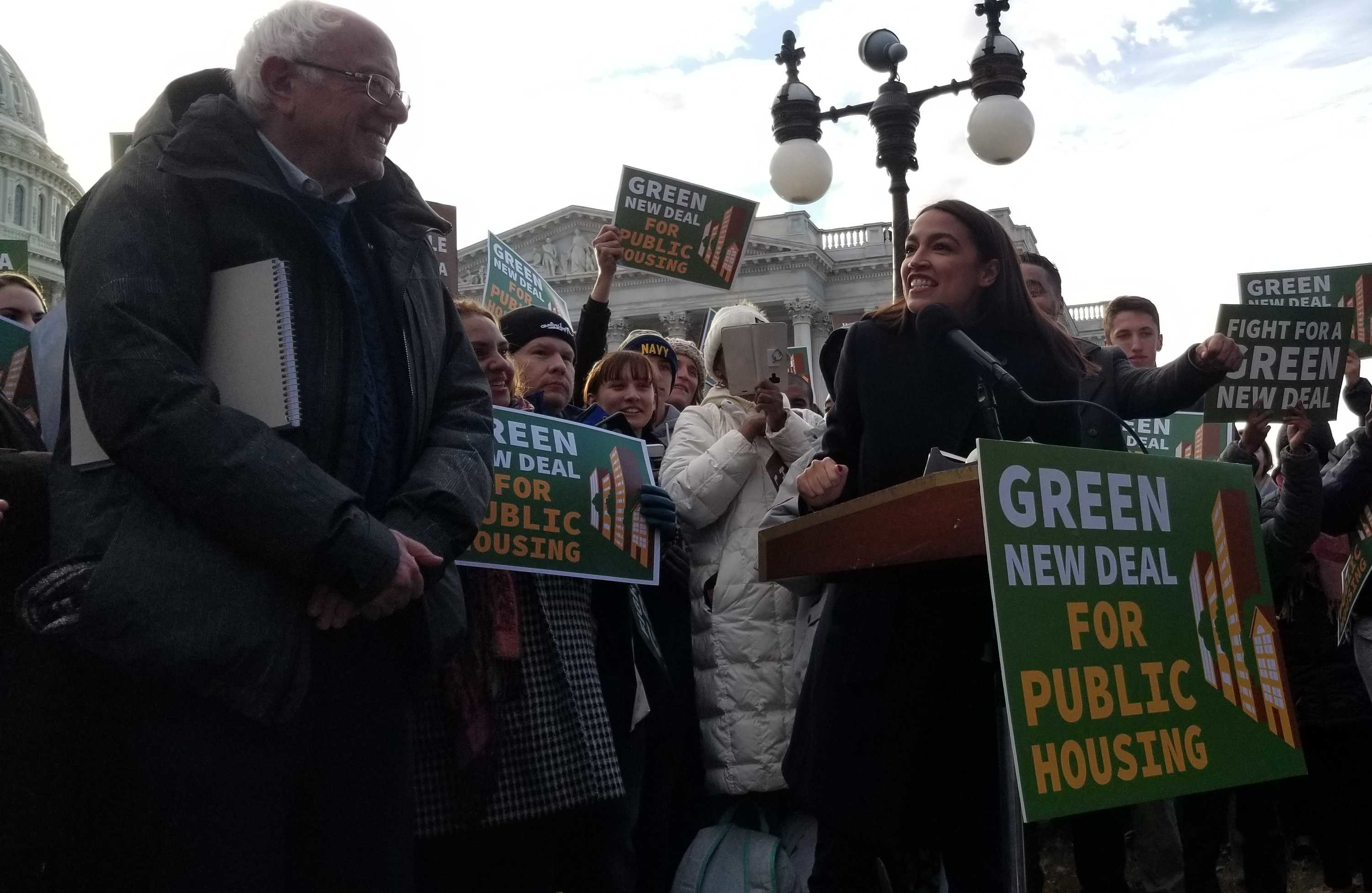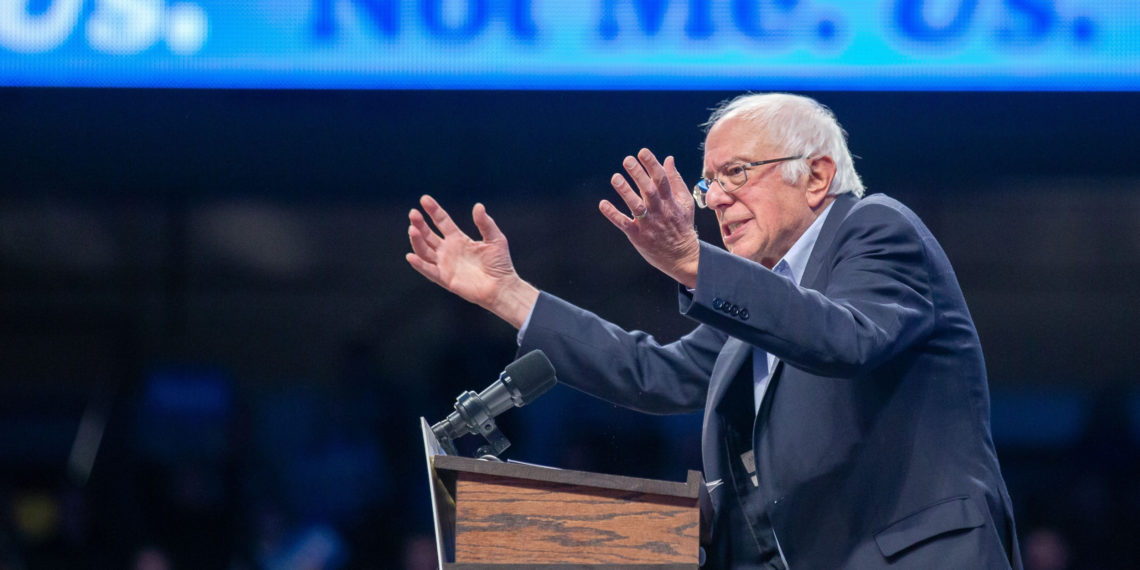The sudden turn of political fortune for Democratic hopeful Bernie Sanders and the progressive movement has spurred reflection as to “what went wrong” and “what is to be done.”
Sanders himself proclaimed he is staying in the race for the foreseeable future as the nation and world deal with a global pandemic. At best, he hopes to still capture the nomination while at worst he hopes to pressure rival Joe Biden into accepting some of his progressive demands.
Whether or not the end of Sanders’ run for president is in sight, the movement he has helped catalyze must consider how to best move forward. For many, the faults are merely tactical. They are blamed on his unwillingness to make alliances within the Democratic Party and his refusal to personally attack Biden and the Democratic establishment.
While this may be true, it distracts of the more fundamental revolutionary lessons of Sanders’ campaign. At stake is not only the degree progressives can win elections or change voters’ policy preferences. Rather, it is the varied ways such movements can increase the power of the working class to exert its influence to bring about a more democratized and emancipated society.
Historical Progress?
The Sanders campaign’s entire premise was to transform electoral politics into a broader social and economic bottom-up movement for change. His slogan appropriately was “Not Me, Us” and he described himself as the “organizer in chief.” Though his platform fits comfortably in a left-wing Liberal tradition of Franklin D. Roosevelt’s 1930s New Deal, his rhetoric and spirit reflected movement building and political revolution.
Yet his attempt to co-opt the legacy of Roosevelt missed a crucial component. Roosevelt both relied upon and served to partially neutralize a multi-racial socialist revolutionary working-class struggle. His gains were only achievable as a “compromise” alternative with economic elites and the rest of the political establishment faced with more serious left-wing insurgencies and calls for liberation – and even those were hard-fought.
At the same time, these “economic rights” masked an agenda for lessening actual working power and co-opting unions, progressives, and Communists into a Liberal Democratic political coalition. The goal was not worker ownership and the collectivization of the economy but collective bargaining and a greater social safety net.
The critique of those on the left, who question the viability of participating in electoral Democratic politics, is rooted in historical analysis. In particular, Sanders was attempting to play the role of both revolutionary and co-opter, the source for radically challenging the system and taming these impulses.
This is not to say that this movement was futile or that elections should be ignored. Yet if these movements are to be truly successful rather than merely inspirational, their focus must be on expanding worker power. This means ensuring that they can exist as an independent political force, which can pressure the status quo into enacting change, along with providing it the space to experiment with different and less exploitative types of economic and social relations.
Beyond Pressure Politics
In a sense, Sanders sought to do more than win elections. He was often assailed on both the right and left for being a “democratic socialist” – especially as his policies were as much Liberal as they were strictly socialist or even Social Democratic.
Missing in such otherwise legitimate critiques is the fact that for Sanders, these were always a prelude to democratizing society as a whole. Underneath his standard boilerplate old fashioned Liberalism was a call for expanding the power of the working class beyond the voting booth and into the workplace and their communities.
The danger, and in certain respects fallacy, of such a project is that it represents a historical reversal for how emancipatory politics can most likely occur. By building up an independent and intersectional working-class politics, progressives will have the power to do more than simply enact “moderate” reforms to a wholly corrupt and exploitative capitalist system. The last month has brought this truth into an even more stark view as Sanders’ campaign’s collapse has left the movement with little power to negotiate with corporate-backed Centrists.

By contrast, through cultivating serious working-class movements for radical change, this could have allowed for the construction of socialist demands and progressive accommodations without which those part of this independent working-class movement would withhold their vote and labor. This strategy was already effective in the “Red State Revolts” of striking teachers. By collectively organizing and mass agitation, they won genuine concessions from elected corporate-backed Republicans and Democrats.
This represents the crux of the issue. The success of any revolution is based on collective power and strategic leverage. It is not simply and never principally based on moral persuasion, nor can revolutions only be directed at fermenting a social struggle that can easily be incorporated within “normal” electoral politics.
Indeed, the strength of arguably the last truly effective revolutionary movement in U.S. history – the civil rights struggle against segregation and white power – was sapped when it refocused itself on achieving goals of political representation.
Revolution Needs More than Votes
If there is a single lesson for progressives to learn from this political experience, it is that without being a political force in their own right – with their own Party structures and cultural institutions – they will always be relegated to the dustbin of history.
Does this mean they cannot participate in the Democratic Party or electoral politics? No, instead the task is always to enhance the bargaining position of workers and those who are most oppressed by the status quo, while also helping to construct an accessible and more desirable alternative.
It is revealing that at present this is a privilege reserved only for the white middle and upper classes, as Democrats never seek to ask them to “hold their nose” and vote for a Leftist candidate but rather attempt to win their vote through concrete policies designed to preserve their economic and social advantages.
Joe Biden was hoping to deal a debilitating blow to leftist rival Bernie Sanders on Tuesday as six states including crucial Michigan began voting in the Democratic presidential primaries https://t.co/CGEHwnijqN pic.twitter.com/xeZPXJxhwC
— AFP News Agency (@AFP) March 10, 2020
Regardless of whether there will be a Sanders or Biden nominee, any progress beyond mere “harm reduction” or stopping fascism through oligarchy, will only come about through uniting and leveraging the working class’ independent power.
However, it is also the precise means, ironically, for creating the space to cultivate new and exciting ways to reorganize the society and economy. Already the grassroots campaign inspired by Sanders has revealed how solidarity can catalyze collective forms of agency that are much more powerful than what is on offer by capitalism.
Yet an independent party and movement can also be the vehicle for experimenting with cooperative lifestyles and working – ones already being witnessed in the rise of “platform cooperativism,” collaborative economies, and attempts to limitedly try to put in place “post-work” programs such as the universal basic income. Without an independent worker’s movement, however, these initiatives will remain “islands” of emancipation within the exploitative ocean of capitalism.
Nevertheless, this mix of real political power and economic creativity is precisely what is needed to produce mass support for replacing the current order for something more emancipatory. They are the carrot and stick of the political revolution called for by Bernie Sanders. It represents the potent mix of the threat of the working class and its allies to withdraw their support unless their demands are met and the glimpse on an everyday level that another type of world is possible.
Right now, Sanders has shown more than perhaps anything else that the revolution needs more than votes – it needs worker power.
Disclaimer: The views and opinions expressed here are those of the author and do not necessarily reflect the editorial position of The Globe Post.






















